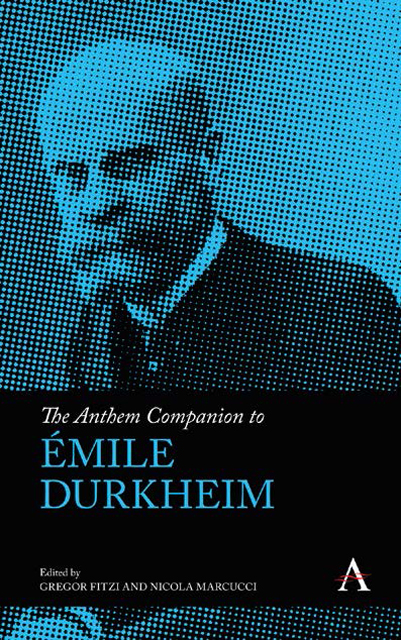Chapter 8 - Towards a Sociological Socialism: Durkheim’s Political Perspective in Retrospect
Published online by Cambridge University Press: 09 December 2022
Summary
Introduction
Treating socialism as a thing— such is the programmatic intention displayed by Emile Durkheim in the opening lecture of the course held at the University of Bordeaux in 1895– 96 as the first part of a never completed history (Durkheim 1928). Applying that fundamental sociological rule has been the inaugural epistemological strategy to dispel a widespread misunderstanding, while clarifying from the outset the peculiar viewpoint that would preside over the entire analysis. Against historical studies and public opinion, Durkheim wanted to emphasize from the start that socialism had not to be confused with an already developed empirical science, interested in exploring the nature and explaining the evolution of human societies, despite its regular incursions in what was now sociology's own domain of inquiry. Although based on a worried observation of modern societies, socialism was not a science, but an object of science. It had to be studied as a given fact about which sociology alone could and should show in which sense it was indeed social, by demonstrating to what extent its main doctrines belonged, in fact and in principle, to the underlying collective reality that its partisans claimed to be able to grasp in its structure and to transform in its organization.
By taking up the basic principle formulated in The Rules of Sociological Method, Durkheim seemed then firmly determined to bring the difference between sociology and socialism back to the apparently insurmountable gap separating science and politics. As he pointed out in the opening lecture, if social science had to limit its pretentions to describing and explaining actual practices and institutions, past and present, belonging to an already constituted reality, socialism had in turn to focus its expectations on the sole development of projects and programs attempting to give a definite shape to a not yet realized future. In this complementary perspective, socialism offered then to sociology the unique opportunity to reach the only politics accessible from its characteristic scientific position. Once grasped and explored in its social rooting, socialism was destined to appear as the future already at work in the present of European societies, grappling with the convulsive process inaugurated by the French Revolution.
- Type
- Chapter
- Information
- The Anthem Companion to Émile Durkheim , pp. 175 - 196Publisher: Anthem PressPrint publication year: 2022

